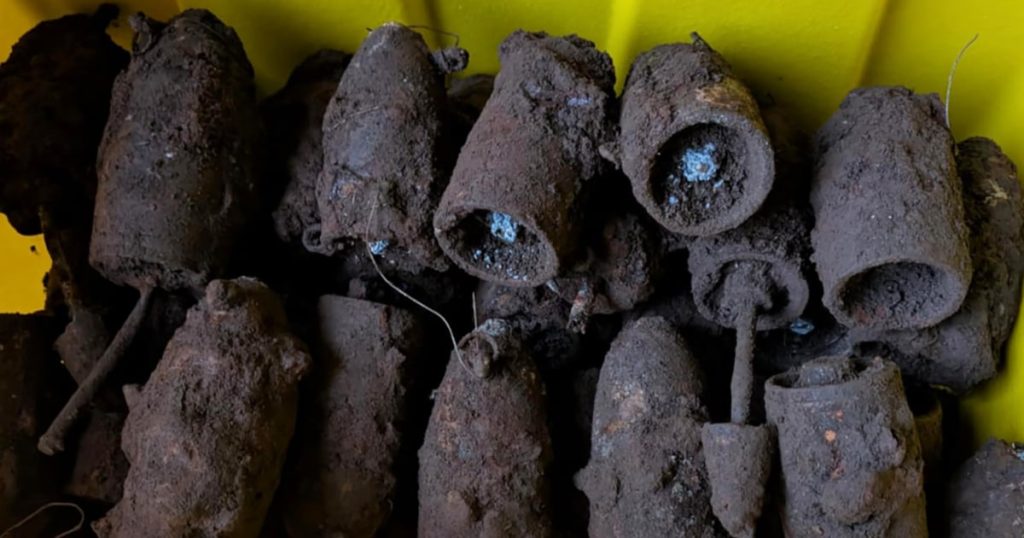An Explosive Discovery Beneath a Children’s Playground
In a shocking and potentially dangerous turn of events, construction workers in the small town of Wooler, located in northeastern England, uncovered more than 170 unexploded World War II bombs beneath a children’s playground. The discovery was made during renovation work at Scotts Park playground, which has left both locals and experts stunned. Kerren Rodgers, a spokesperson for the Wooler Parish Council, revealed that the first bomb was found last month, and since then, a total of 176 explosive devices have been recovered. The unexpected find has raised concerns about the safety of the area, which has been a popular spot for children for decades.
The Recovery Effort and the Danger Posed by the Bombs
The Parish Council quickly sprang into action, calling in bomb disposal experts from Brimstone Site Investigations to search the site for more explosives. The experts uncovered 65 practice bombs on their first day, each weighing 10 pounds, in an area spanning just over 10 square feet. By the end of the second day, an additional 90 bombs had been recovered, bringing the total to 155. While these bombs are referred to as "practice bombs," they still pose a significant threat, as they contain live charges. The Parish Council emphasized the importance of professional removal to ensure the site is safe for both workers and the eventual users of the playground.
Historical Context: A Training Ground from the Past
Councillor Mark Mather, a member of the Wooler Parish Council, provided some historical context for the discovery. He suggested that the area might have served as a training ground for the Home Guard, a defense organization that operated during World War II. Mather explained that after the war, it appears the military simply buried the leftover ordnance in a pit, leaving behind a dangerous legacy. This theory is supported by the fact that similar discoveries of unexploded WWII ordnance have been made across the UK in recent years.
The Broader Implications: Unexploded Ordnance Across the UK
The discovery in Wooler is far from an isolated incident. World War II left behind a trail of unexploded bombs, grenades, and other ordnance that continue to pose a threat to this day. For example, in February 2022, a major evacuation was carried out in Plymouth after a 1,000-pound unexploded bomb was found in a garden. Authorities transported the device through the city before detonating it at sea in what was described as one of the largest peacetime evacuation operations in UK history. In Edinburgh, three unexploded bombs dropped during a German raid in 1940 remain buried under the city’s streets, according to police archives. These incidents highlight the ongoing challenges of dealing with the remnants of war.
A Challenging Situation for the Community
For the residents of Wooler, the discovery has been a sobering reminder of the town’s wartime history. Councillor Mather reflected on the gravity of the situation, saying, “It’s quite something to think the children have been playing on bombs, and it’s been a really challenging situation.” The playground, which was being renovated to become fully inclusive, has now become a focal point for concern. Only a third of the park has been cleared so far, and officials are conducting further excavations to ensure no more ordnance is hidden beneath the surface. The community is eager to see the playground restored to its former glory, but safety remains the top priority.
A Delicate Balance: Preserving Safety and Honoring History
The recovery operation in Wooler is a delicate process that requires precision and care. The team from Brimstone Site Investigations is working tirelessly to remove and dispose of the bombs safely, but they have refrained from comment until the operation is complete. For now, the town awaits the all-clear, hoping to return to normal life soon. The incident serves as a poignant reminder of the long-lasting impact of war and the importance of handling its remnants with care. As the people of Wooler look to the future, they are also reminded of the lessons of the past, and the need to honor history while ensuring the safety of generations to come.












